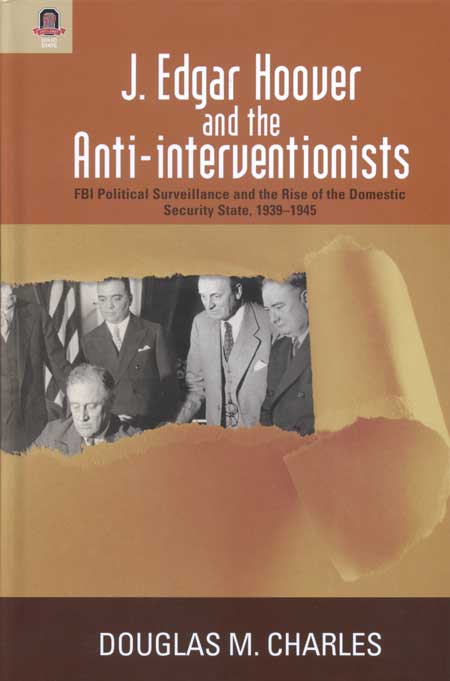J. Edgar Hoover and the Anti-interventionistsFBI Political Surveillance and the Rise of the Domestic Security State, 1939–1945Douglas M. Charles |
 7/10/07 History/American; American Studies 197 pp. 6x9  $54.95 cloth 978-0-8142-1061-1 Add cloth to shopping cart $14.95 CD 978-0-8142-9140-5 Add CD to shopping cart $21.95 paper 978-0-8142-5229-1 Add paper to shopping cart Shopping Cart Instructions Review/Change Shopping Cart & Check-out | |||
|
“Douglas Charles’s monograph offers new information about the late 1930s public and congressional debate over President Roosevelt’s interventionist foreign policy decisions and about the politics of foreign policy. J. Edgar Hoover and the Anti-interventionists adds an important dimension to other works that have focused on FBI counterespionage policy relating to Germany during the 1930s and 1940s.” —Athan Theoharis, professor of history, Marquette University In this very timely manuscript, Douglas M. Charles reveals how FBI Director J. Edgar Hoover catered to President Franklin D. Roosevelt’s political interests. Between 1939 and 1945, the Federal Bureau of Investigation monitored the political activities of President Roosevelt’s anti-interventionist foreign policy critics. Hoover, whose position as FBI director was tenuous within the left-of-center Roosevelt administration, catered to the president’s political and policy interests in order to preserve his position and to expand FBI authority. In his pragmatic effort to service administration political goals, Hoover employed illegal wiretaps and informers, collected derogatory information, conducted investigations that had the potential to discredit the anti-interventionists, forwarded political intelligence to administration officials, and coordinated some activity with British intelligence. This all occurred within a crisis atmosphere created with the onset of the Second World War, and it was this political dynamic that permitted Hoover to successfully cultivate his relationship with President Roosevelt. In the process, the administration’s otherwise legitimate foreign policy opposition—regarded by some as subversive—had their civil liberties violated through intensive FBI scrutiny of their political dissent. Moreover, the FBI’s surveillance marks the origins of the FBI’s role in the later national security state. Among the targets examined in this book are Charles Lindbergh, the America First Committee, notable anti-interventionist senators and congressmen, the anti-interventionist press, and other prominent individuals who advocated American isolation from foreign war.
| ||||


 Douglas M. Charles
Douglas M. Charles